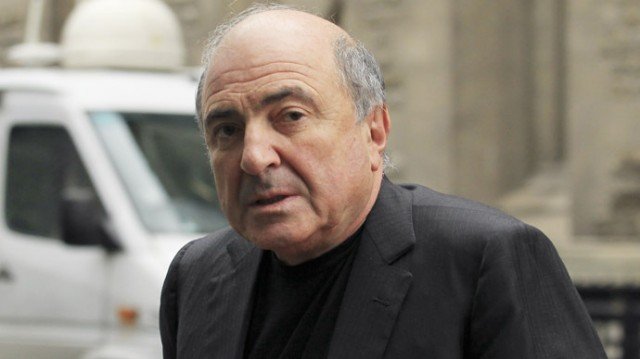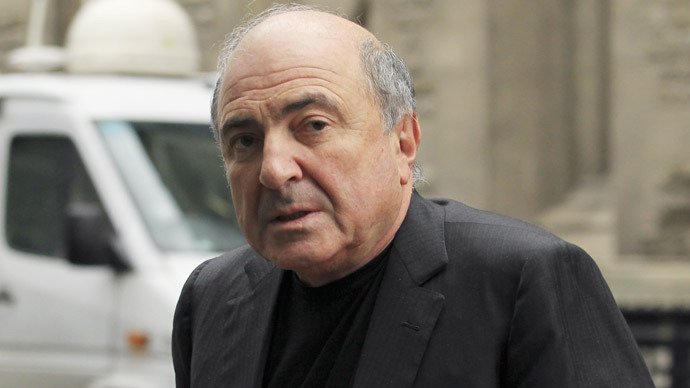Exiled Russian tycoon Boris Berezovsky has been found dead at his home outside London on March 23.
Boris Berezovsky, who died at the age of 67, was a Russian dissident and a former Kremlin power broker whose fortunes went into dramatic decline as Vladimir Putin established himself as the country’s president.
He played a role in Vladimir Putin’s rise in the late 1990s, but went into opposition and then self-imposed exile as the new president consolidated his power.
Boris Berezovsky remained a wanted man in Russia until his death, and was for a long time dedicated to the anti-Putin cause.
In recent years, Boris Berezovsky’s wealth is thought to have considerably diminished and recent court cases have left him struggling to pay legal fees and other debts.
In 2012 a court battle in London with fellow “oligarch” Roman Abramovich, his former associate with whom he fell out as Vladimir Putin came to power, ended in defeat, with his allegations that he was intimidated by Abramovich into selling shares in Russian oil giant Sibneft for a “fraction of their true worth” entirely rejected by the judge.
And earlier this year, his ex-partner Yelena Gorbunova alleged in the High Court that he owed her millions of pounds from the sale of a £25 million ($39 million) property in Surrey, UK.
On March 18, The Times newspaper reported that Boris Berezovsky had been forced to try to sell a painting by Andy Warhol of the former Soviet leader Vladimir Lenin.
The role of political plotter, and financier of Russian opposition parties, was the latest in a series of reincarnations that Boris Berezovsky went through in his 67 years.
His first career was as a mathematician, his second as a car salesman, his third as a political kingmaker, nicknamed Rasputin, under Russia’s first president Boris Yeltsin.
Boris Berezovsky made his fortune importing Mercedes cars into Russia in the 1990s, and setting himself up as a middleman distributing cars made by Russia’s Avtovaz.
While Avtovaz struggled to survive, Boris Berezovsky nevertheless made millions.
By the mid-1990s, he was one of Russia’s leading oligarchs, a word used for those who made their fortunes during the wholesale privatization of state assets.

As well as taking ownership of the Sibneft oil company, Boris Berezovsky became the main shareholder in the country’s main television channel, ORT, which he turned into a propaganda vehicle for Boris Yeltsin in the run-up to the 1996 presidential election.
Boris Berezovsky has survived numerous assassination attempts, including a bomb that decapitated his chauffeur.
He took Forbes magazine to court for describing him as the “godfather of the Kremlin” and linking him to the murder of a popular television journalist.
Forbes settled out of court, accepting that the allegations were false.
Boris Berezovsky was at the height of his power in the later Yeltsin years, when he was deputy secretary of Russia’s security council, a friend of Boris Yeltsin’s daughter Tatyana, and a member of the Yeltsin inner circle, or “family”.
Although he helped Vladimir Putin enter the family, and funded the party that formed Putin’s parliamentary base, the new president moved to regain control of the ORT television station, and to curb the political ambitions of Russia’s oligarchs.
Boris Berezovsky left Russia for self-imposed exile in the UK at the end of 2000.
An early attempt to promote opposition to Vladimir Putin, by funding the Liberal Russia party, ended in disaster when its two most prominent members were assassinated.
“I understood [then] that this way of open opposition doesn’t work, at least for me. And that’s the reason why I decided to choose the other way,” he later said.
Without naming Boris Berezovsky, the Kremlin accused its foreign-based opponents of organizing the 2006 assassinations of former KGB agent Alexander Litvinenko and the campaigning journalist Anna Politkovskaya, in order to discredit Vladimir Putin.
Boris Berezovsky denied the allegation, and accused Vladimir Putin of himself being behind Alexander Litvinenko’s death.
Boris Berezovsky bought the ex-spy – himself in exile in London – a house in Muswell Hill and helped him to publicize claims that Vladimir Putin organized the bombings of apartment blocks in Russia, in 1999, which paved the way for Russia’s second military intervention in Chechnya.
He said Vladimir Putin was prepared to kill anyone that he defined as an enemy of Russia, and that he himself was a target.
That is why the mansion Boris Berezovsky bought for £10 million ($15 million) from former disc jockey Chris Evans was equipped with bullet-proof windows, laser monitors, spy cameras and reinforced steel doors.
[youtube cTzE5aLGHHE]
